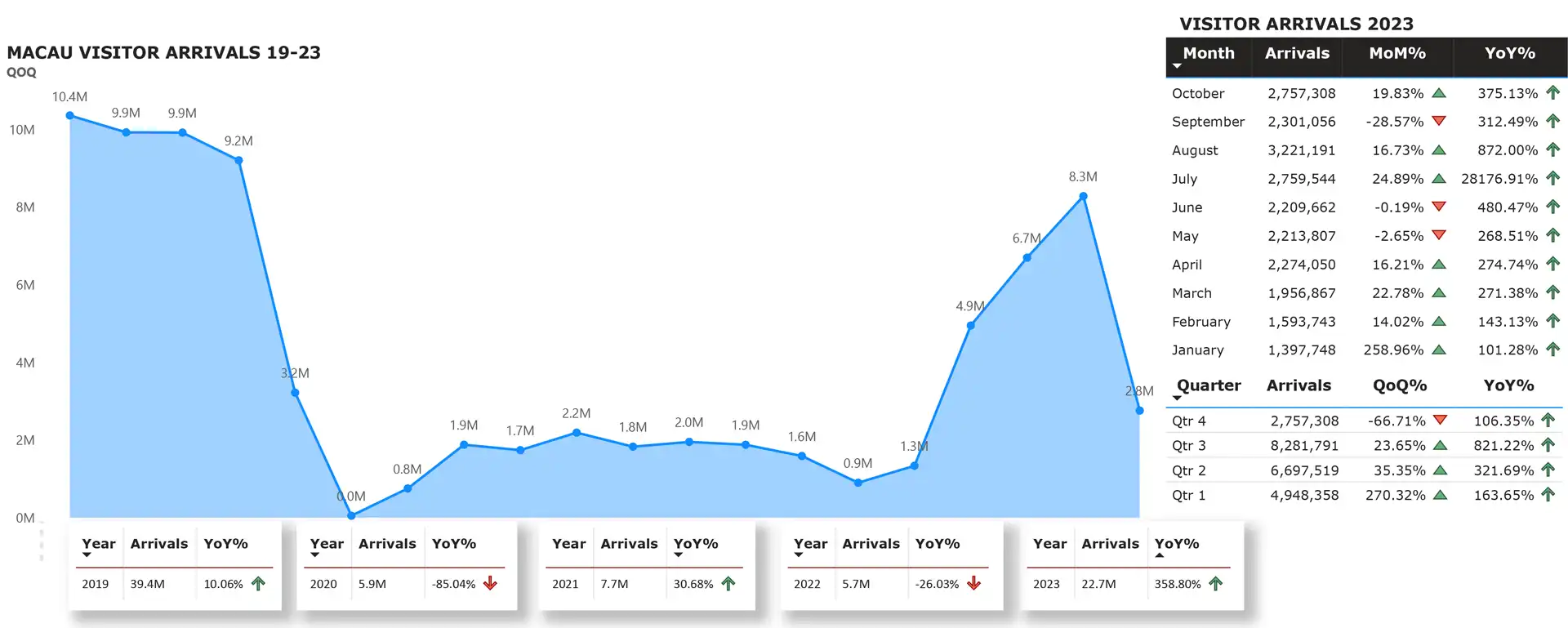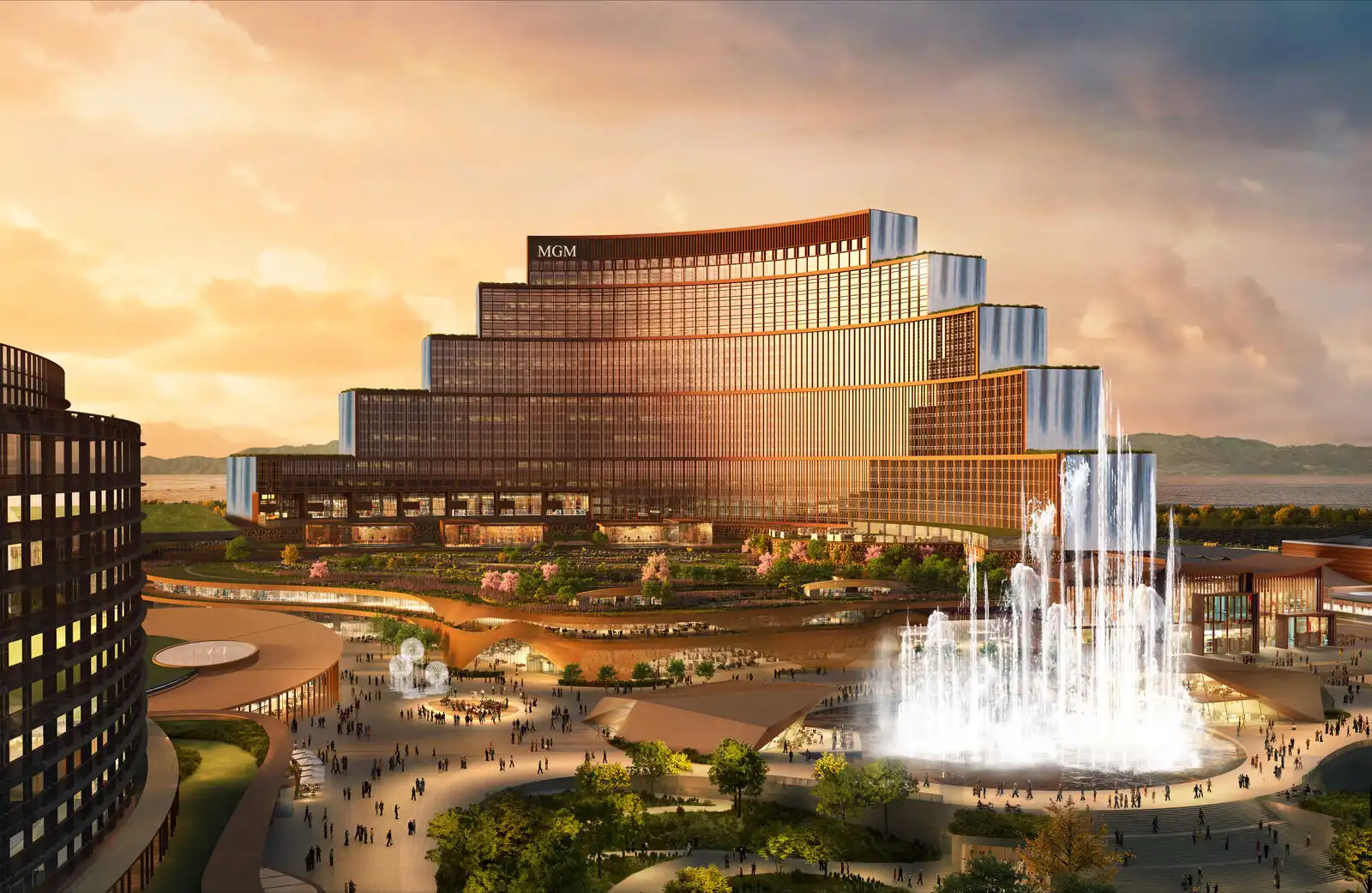Macau, the Asian gaming hub, is gearing up for a further resurgence in 2024, according to Davis Fong, the director of the Institute for the Study of Commercial Gaming and a professor at the University of Macau.
Despite the challenges posed in the post-COVID-19 era, Macau experienced a better-than-expected recovery in 2023. Fong believes that Macau’s gross gaming revenue (GGR) may reach MOP180 billion ($22.3 billion) in the current year.
In an interview with AGB alongside the MGS Entertainment Show in mid-November, Fong provided insights into the anticipated visitor arrivals for 2024. Having welcomed nearly 40 million visitors in 2019, the scholar suggests that Macau could reach at least 80 percent of these visitor levels, or 32 million visitors, in 2024. A more optimistic scenario, with a 90 percent recovery, could see a significant uptick to 36 million visitor arrivals, showcasing the resilience of Macau’s tourism industry.
However, uncertainties still linger on the horizon for 2024. International air travel, integral to Macau’s tourism, remains constrained, impacting not only visitors using Macau Airport but also those utilizing Hong Kong International Airport and nearby airports. The pace of international flight recovery will play a crucial role in determining how swiftly Macau can return to 90 percent visitor levels.
According to official statistical data, during the first ten months of 2023, there was a significant 358.8 percent growth in visitor arrivals compared to the previous year, resulting in a cumulative total of 22,685,476 visitors. Macau’s Secretary for Economy and Finance, Lei Wai Nong expressed confidence that the city is poised to host around 28 million visitors by the end of this year.

However, the Civil Aviation Authority (AACM) revealed that from January to October, Macau’s airport served 4.04 million passengers, slightly over 50 percent of the pre-pandemic 2019 total. Macau saw nearly 8 million passengers in 2019, the year right before the COVID-19 outbreak.
At the same time, Macau’s overseas visitor ramp-up is still lagging behind expectations, as the city recorded only 1,021,612 foreign visitors for the first ten months, which represents 4.5 percent.
Regional competition
Fong believes it is premature to assess the impact of regional competition. Japan’s casino is slated to open in 2030, giving Macau a considerable lead, while Thailand is just beginning to explore gaming legalization.


He contends that Macau’s early entry and global acceptance of the gaming industry provide it with a strategic advantage over emerging competitors.
The Japanese central government approved a plan to build the country’s first casino in the western city of Osaka in April of this year. The investment amount is expected to reach $10 billion, with the potential to produce $4 billion in revenue at the start of the next decade.
Meanwhile, Thailand has also appeared in the spotlight, as one of the most popular tourism destinations in Southeast Asia is now considering becoming a part of the gaming industry.
Some gaming experts believe that Thai officials are now poised to explore the potential benefits of legalizing gaming within the country, seeking to replicate the economic gains witnessed in their Southeast Asian counterparts.
Drawing parallels to Las Vegas, Fong notes that Macau’s concentration of integrated resorts in Asia positions it as a formidable player. As Las Vegas witnessed the proliferation of casinos across the United States, Macau could experience a similar trend. With its well-established gaming infrastructure and the most concentrated hub for integrated resorts in Asia, Macau is poised to maintain its competitive edge for an extended period.






















